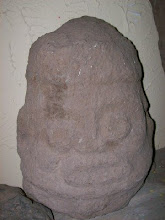¿Why is the New Bolivian Constitution so important? There are a lot of reasons. One of these, is in the first article, which says that Bolivia is a Plurinational, free, independent, intercultural, democratic State and with autonomies.
The inclusion of all the population in this Constitution is an important reform. Since the Constitution of 1826, most of the inhabitants belonging to the indigenous peoples were not included in this document, but now, it is not only recognized the existence of the indigenous peoples of high and low lands in Bolivia, but also their languages, their own spiritual beliefs and practices, etc.
One of the arguments used by the oppostion to this new Constitution said that it was discriminating. However, indigenous peoples and afrobolivians were discriminated for years. In many cases, no access or limited access to participate in the political power, no possibilites to education or health, many types of abuses, was something common.
We know that the application of the New Constitution may take some time, but there is a hope that all the laws and policies that could derive from this document can benefit all the people, not only to some families who governed Bolivia in the past.
























